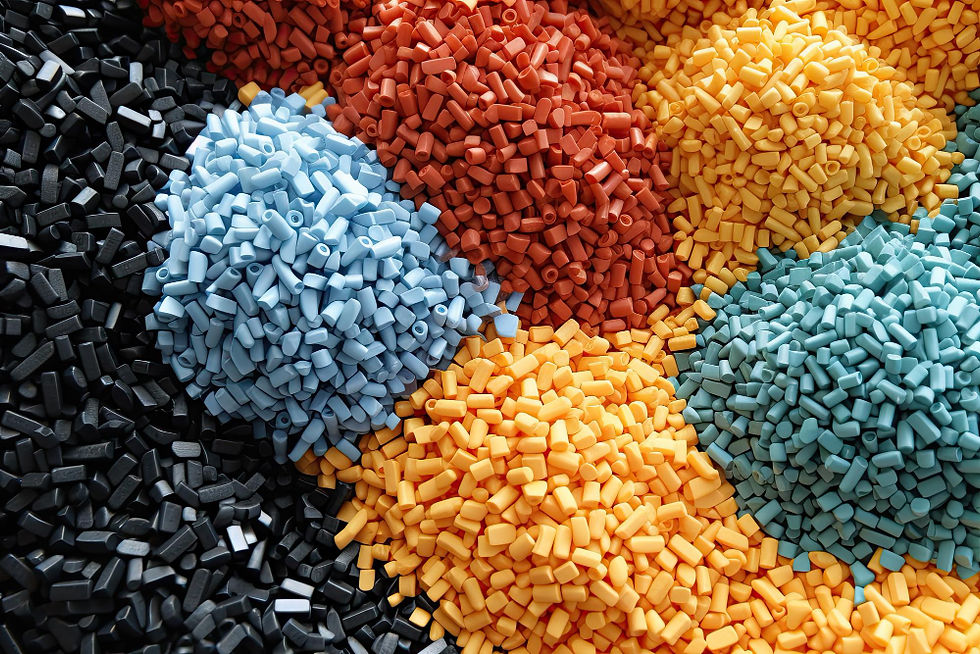The Plastic Evolution - Polyethylene Manufacturing Materials
- ameyplasticstlc
- Oct 27, 2023
- 2 min read
Updated: Dec 6, 2023
Polyethylene: The Ubiquitous Polymer
Continuing our voyage through the world of plastics, we now explore Polyethylene (PE). Recognised as the most commonly used plastic worldwide, Polyethylene's omnipresence spans from grocery bags to intricate medical devices.
Historical Background: The story of Polyethylene began in 1933 when it was serendipitously discovered by chemists at Imperial Chemical Industries (ICI) in the UK. Initially perceived as a waxy, white material, its potential soon became evident, leading to vast commercial production by the end of the 1930s.

Properties:
Variability: Polyethylene is categorised based on its density and branching, leading to various types such as LDPE (Low-Density Polyethylene) and HDPE (High-Density Polyethylene).
Durability and Flexibility: PE is both tough and flexible, adapting to various applications with ease.
Chemical Resistance: It is largely inert, making it suitable for containers holding reactive or corrosive substances.
Translucence: While not entirely transparent, many forms of PE exhibit a translucency, making it easy to discern the content inside containers.
Pros:
Versatility: The multitude of PE types ensures its presence in a vast array of products, from bottles and toys, to geomembranes.
Recyclability: Polyethylene can be recycled, aligning with increasing eco-conscious endeavours.
Economical: Due to its vast production scale and relatively simple production process, PE remains one of the most cost-effective plastics.
Cons:
Environmental Impact: Given its ubiquity, discarded PE products, especially single-use items, contribute significantly to global plastic waste.
Temperature Sensitivity: Polyethylene has a relatively low melting point, which can limit its application in high-temperature environments.
Permeability: Though it acts as a barrier, certain gases and vapours can permeate through PE, which is why it's sometimes combined with other materials for packaging.
Polyethylene, in its widespread applications, represents the enormous impact of plastics on our daily lives. It showcases the possibilities and challenges inherent in the vast world of polymers, prompting reflection on sustainable use and disposal.
For inquiries or to discuss your plastic-based project, contact the Amey Plastics team on 01730 266525 or drop an email to sales@ameyplasticsltd.co.uk.






Comments